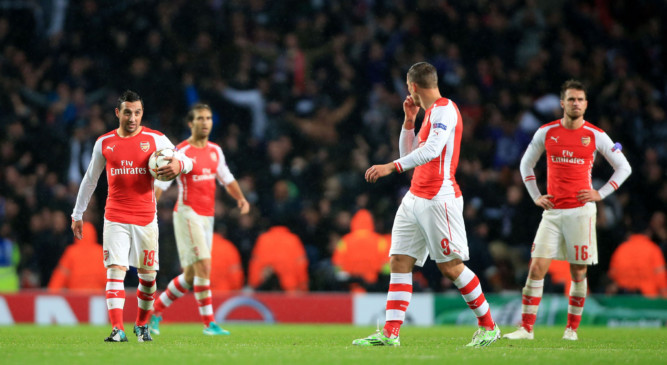
It has been a long time coming, but it has finally become clear the era of English dominance in Europe is over.
Need proof? Just look at the Champions League.
While Bayern Munich, Borussia Dortmund and Real Madrid cruised into the knockout stages last week, not one of England’s four competing clubs could muster a victory.
Not Manchester City, who stumbled to a dreadful home defeat against CSKA Moscow.
Not Chelsea, who had to scramble from behind to claim a draw in Maribor.
Not Arsenal, who chucked a three-goal lead down the drain against Anderlecht.
And not Liverpool, whose 1-0 defeat in the Bernabeu drew plaudits, but no points.
Seven or eight years ago, such a dismal showing would have been unthinkable. Now it’s not even surprising. The sad fact is that since the Premier League clubs’ European heyday, when all-English semi-finals and Finals were a regular occurrence, Real Madrid, Barcelona, Bayern Munich and maybe even Paris St Germain have left the English top-flight behind.
It used to be the case that when the likes of Arsenal, Chelsea, Manchester United or Liverpool faced one of Europe’s top clubs, they did so believing they were better. Nowadays, they can’t even pretend that’s the case.
On the evidence I’ve seen, it comes down to the simple fact that the best sides in Spain and Germany have more flair and more big-game players than our teams.
And when you examine why, a clear pattern emerges.
Luis Suarez fired Liverpool into this year’s tournament then he left for Barcelona. A few years back, Gareth Bale inspired Spurs all the way to the quarter-finals only to be lured to Madrid.
Going back even further, Cristiano Ronaldo did the business for Manchester United now he’s also doing it for Real.
When the best clubs in England are selling their best players to the best clubs on the continent as they have been for years there is only ever going to be one outcome.
Manchester City, Chelsea, Arsenal and Liverpool’s difficulties in Europe are the result of a weaker Premier League plain and simple.
As I said, that has been a long time coming and given the size of the gap that Real, Barca and Bayern have opened up on England’s top clubs, I fear it could be a long time in the fixing.

Enjoy the convenience of having The Sunday Post delivered as a digital ePaper straight to your smartphone, tablet or computer.
Subscribe for only £5.49 a month and enjoy all the benefits of the printed paper as a digital replica.
Subscribe